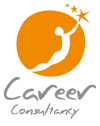People will buy from people they …know…like…and trust. I can remember being told this many years ago. It resonated with me immediately and I have used it ever since to help people to perform better at job interviews.
Note that I call it “performing”. The Interviews chapter in our Manual is called “Putting on the Interview Hat”. Our clear message is to go into selling mode as soon as you enter the interview room and then take the hat off and revert to your normal self once you leave the room.
The Know…Like…Trust analysis allows you to achieve a definite improvement in your interview skills.
Master “Know” to achieve job interview success
How can I buy you if I don’t know you?
Common sense really, yet most candidates miss a critical opportunity to sell themselves. They are so worried about being boring and rambling on that they actually give very little information to allow the buyer to select them.
Or, they haven’t done their homework – they haven’t thought about exactly how they bring value to the workplace and therefore are incapable of selling that value to the prospective buyer.
So, when invited to “give an example”, as in the classic behavioural interviewing technique…
“Give us an example of when you showed strong leadership skills?”
“Tell us about a time when you worked in a team that was not performing well…”
their answers are usually limp and unconvincing.
How long should my answer be in an job interview?
One of my career mentors had an egg timer approach to answers from the clients he drilled. In other words, his emphasis was on them spitting out the content as quickly as possible and then keeping quiet.
I have never taken that approach. I always compare it to an engrossing movie. If we are caught up in the story, we don’t look at our watch every 30 seconds, wishing it would just end. So, my recommendation is to deliver a well structured story that fascinates the listeners.
“Know” Tips
- Use the PAR model
Problem…Action…Result is the simplest model to use in order to construct a coherent answer. To make your answer really zing, work to the highest standards. So, with the “Problem”, it is your job to set the scene and make them care about the issue. With the “Action”, keep it to the 3 key things you did. And when it comes to “Result”, ensure that there is a concrete outcome. - Use numbers where ever possible
Numbers add immense credibility to your stories, but I am yet to find any client who automatically includes them without prompting. - Mention other people in your stories
This is not an issue of whether to use “I” or “We” (too complicated to talk about here). I mean that your stories should paint a picture that people are important to you or else you start to sound like a megalomaniac - Have a hook
Find something about your story that makes it memorable. It is not enough to create a momentary good impression. Your buyer needs to remember your stories two hours later, two days later, so that you stay front of mind as the outstanding candidate - Provide insight into your philosophy / rationale
It is dangerous to expect a prospective employer to extrapolate from the specifics of your story to the problems they would want you to solve in their workplace. You need to give them insight into your thought processes. That way you sound thoughtful, self-aware and mature
Master “Like” so that they can’t wait to bring you on board
Your job in an interview is to charm the listener so that they think it would be great to work with you. According to a 2015 survey by Recruitment site CareerOne, more than 86% of employers said that a candidate’s lack of likeability or interview etiquette would probably cost them a job opportunity. We are talking about crucial stuff here!
“Like” Tips
- Use coffee shop talk
It’s very hard to be charmed by someone who sounds like they’re being interrogated or who is stiff and formal - Obey normal rules of social discourse
Smile, nod, use Active Listening when appropriate - Provide content that makes you appear mature and thoughtful
Nuanced answers, even those that may reveal (carefully chosen) inadequacies make you sound like a real human being, someone they can relate to
Master “Trust” so that they can’t wait to hand the job tasks over to you ASAP
The first element here is to engender trust in your ability to master the technical components of the job. Only after they relax in this area are buyers prepared to accept the broader elements implied in this word.
“Trust” Tips
- Know your stuff
Make sure that any content in your answers is in line with latest thinking - Broaden your research and thinking
Once you have covered off on the essentials outlined in the job ad and the Position Description, make sure that you can talk about general management principles. For example, I have never met any client yet who could define “Leadership” in any coherent way even though it could be argued that an Executive should have thought deeply about this characteristic
Translating theory into Interview Outcomes
The first step is to take yourself off to a spot where the ambiance is conducive to creative thinking and start to construct your PARs.
Eventually, though, it is critical that you PRACTISE, that you get the words out of your mouth. We are all great in our heads but something disastrous seems to happen when those words slip past our voice box.
Find an astute friend and ask them to thoroughly grill you. Failing that, film yourself on your camera. I know it’s embarrassing but it’s amazing what you see when you play it back.
Balance of Power
The interview is the final stage of your campaign to swing the balance of power to you. You want to really worry your buyer. “Gee, she’s great. What are we going to have to do to get her to come on board with us???”
Not only is this invaluable when it comes to Salary Negotiation, it means that you start your role with a “halo” around your head… “I can’t wait for him to start – he’s going to be great!”
Wouldn’t it be great if they said that about you when you apply for your next job?
Like what you’ve read? Subscribe to our newsletter by clicking here. You’ll be the first to hear about our updates once a fortnight!


